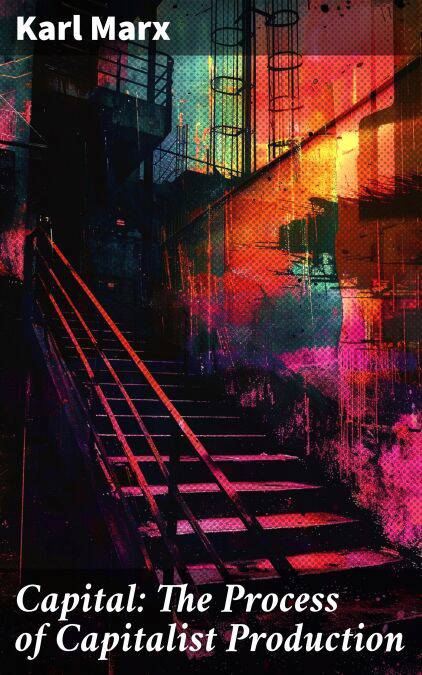
- Afhalen na 1 uur in een winkel met voorraad
- Gratis thuislevering in België vanaf € 30
- Ruim aanbod met 7 miljoen producten
- Afhalen na 1 uur in een winkel met voorraad
- Gratis thuislevering in België vanaf € 30
- Ruim aanbod met 7 miljoen producten
Zoeken
Capital: The Process of Capitalist Production E-BOOK
Unraveling the Complexities of Capitalism: An In-Depth Exploration of Economic Dynamics and Power Struggles
Karl Marx
E-book | Engels
€ 1,99
+ 1 punten
Omschrijving
In "Capital: The Process of Capitalist Production," Karl Marx presents a profound analysis of the capitalist economy through a meticulous exploration of production, labor, and value. Employing a dialectical methodology, Marx dissects the complex relationships between commodities, capital, and labor, revealing the underlying social dynamics that drive exploitation and economic disparity. His literary style intertwines a rigorous scientific analysis with passionate critique, situating the work within the broader context of the Industrial Revolution and rising class struggles in 19th-century Europe. Marx's theories not only challenge the economic status quo but also impart a historical framework that continues to inform contemporary debates about capitalism. Karl Marx, a philosopher, economist, and revolutionary socialist, was deeply influenced by the socio-economic turmoil of his time. His engagement with Hegelian philosophy and critical theory, combined with his firsthand observations of industrial labor conditions, fueled his commitment to understanding and overthrowing capitalist structures. Through personal experiences and historical contexts, Marx sought to illuminate the oppressive mechanisms of capitalism, thereby inspiring generations of thinkers and activists. "Capital" is essential reading for anyone seeking a critical understanding of economic systems and their societal implications. It is not merely an academic text; it is a clarion call for awareness and action against the injustices of capitalism. By engaging with this seminal work, readers will gain invaluable insights into the perpetuation of class struggle and the urgent need for systemic change.
Specificaties
Betrokkenen
- Auteur(s):
- Uitgeverij:
Inhoud
- Aantal bladzijden:
- 871
- Taal:
- Engels
Eigenschappen
- Productcode (EAN):
- 8596547669371
- Verschijningsdatum:
- 16/11/2023
- Uitvoering:
- E-book
- Beveiligd met:
- Digital watermarking
- Formaat:
- ePub

Alleen bij Standaard Boekhandel
+ 1 punten op je klantenkaart van Standaard Boekhandel
Beoordelingen
We publiceren alleen reviews die voldoen aan de voorwaarden voor reviews. Bekijk onze voorwaarden voor reviews.











